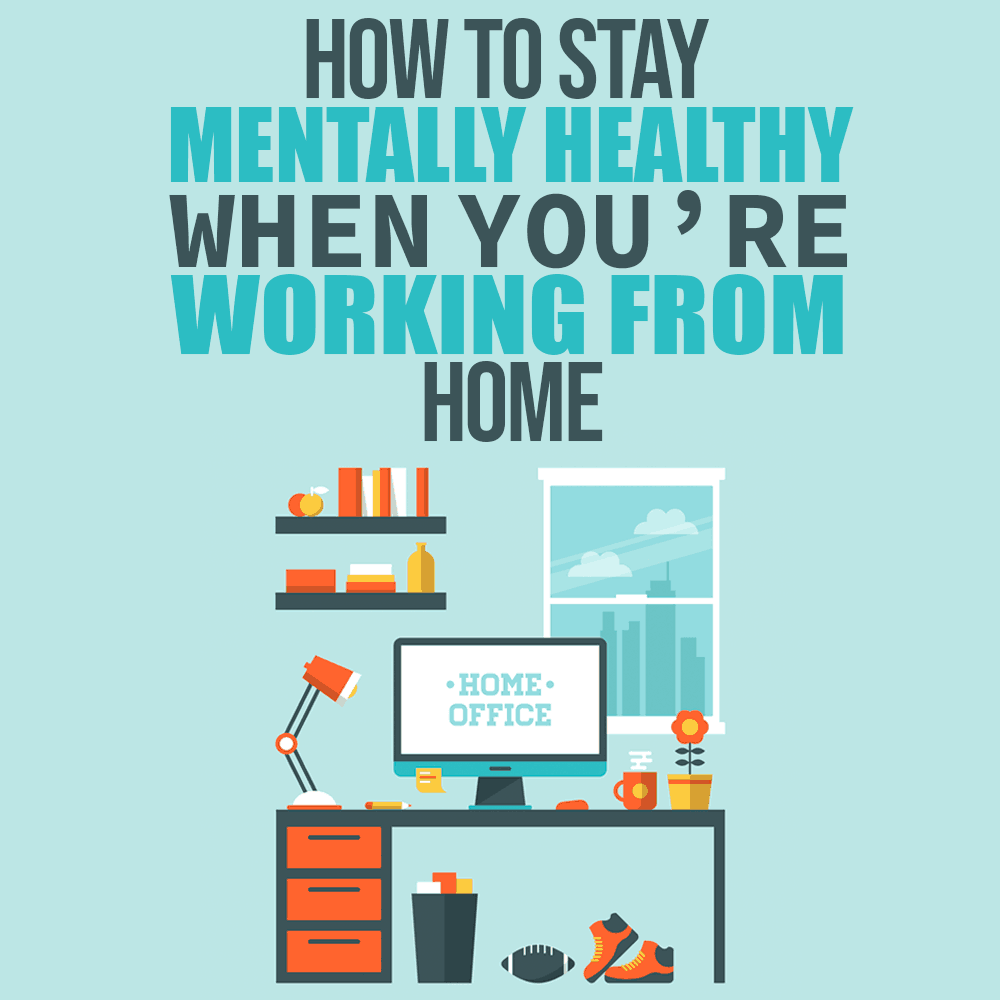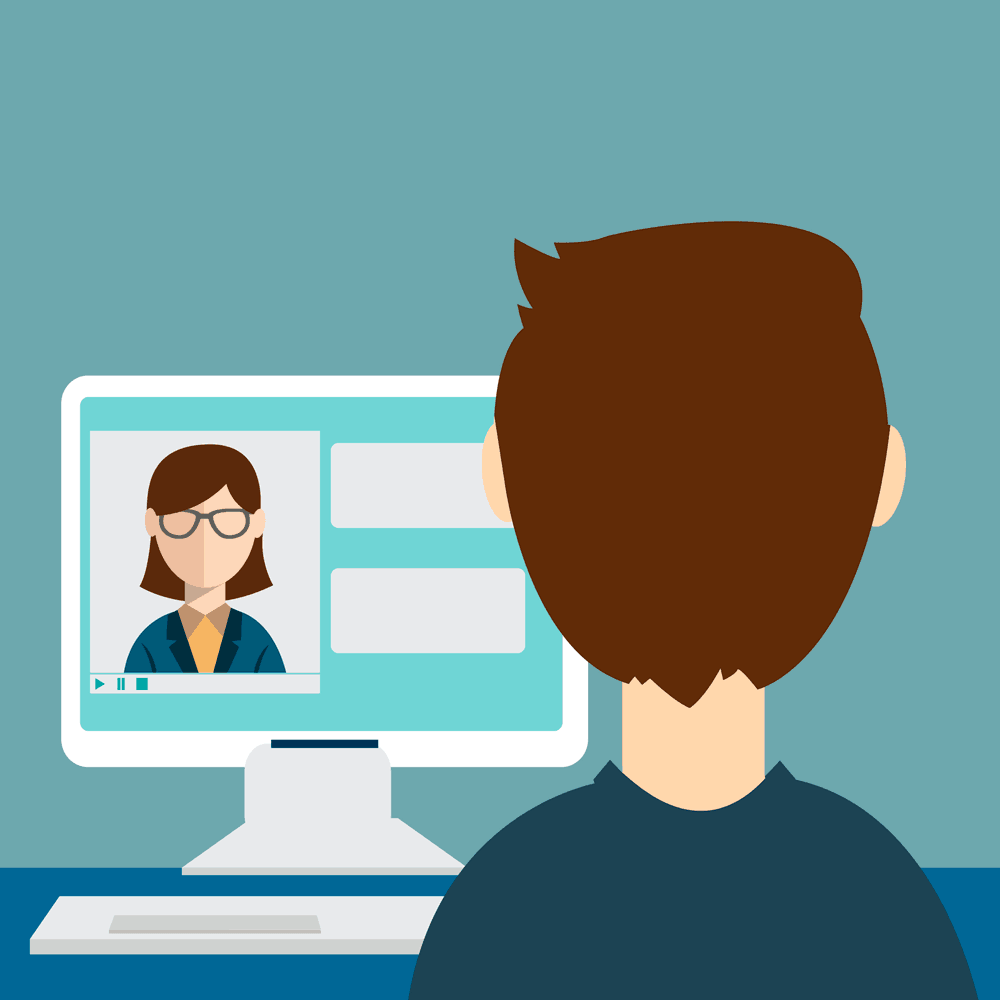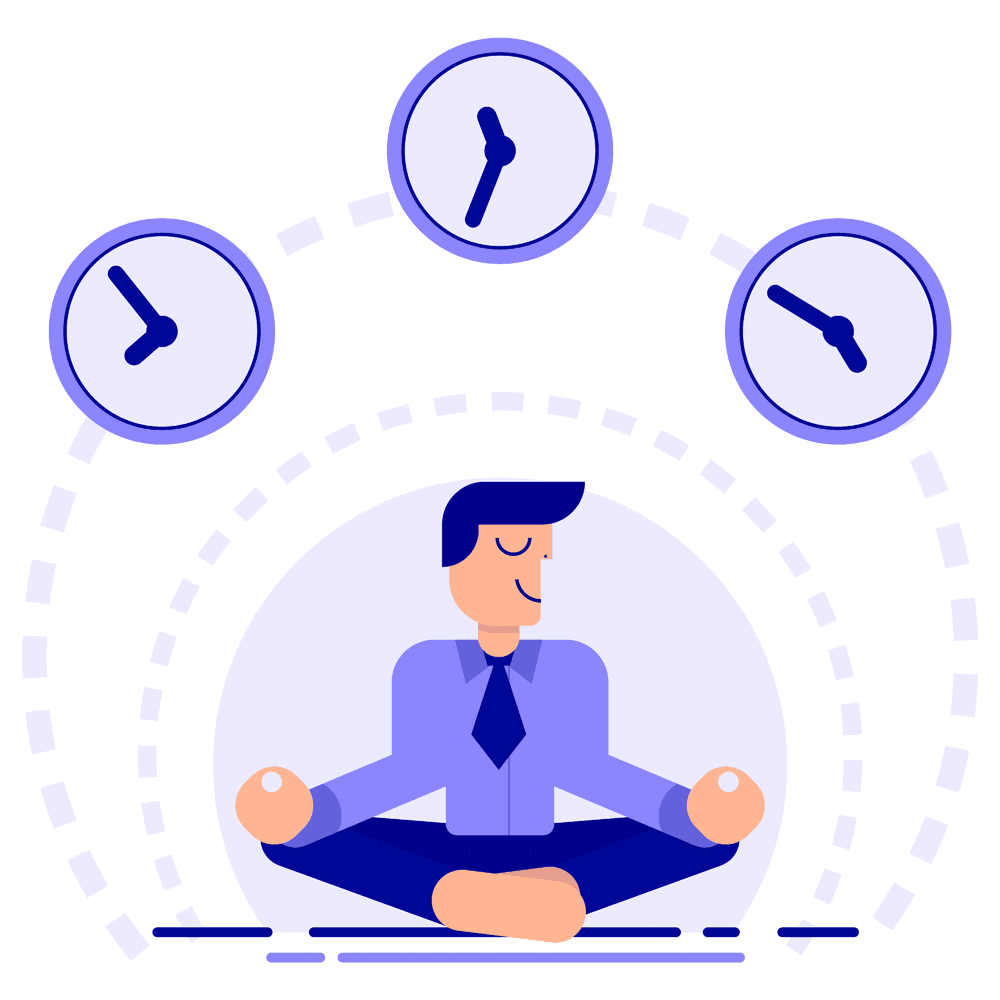 “Starting tomorrow we’re all working from home.”
“Starting tomorrow we’re all working from home.”
That was the message from our company’s CEO last Thursday.
I know we’re not the only ones.
With the ever increasing reach of COVID-19, many programmers are finding themselves working remotely for the first time. And that’s the dream, right?
Maybe not because of some super virus that’s taken the world by surprise. But, in general, most of us would more than willingly opt-in to a workday where we roll out of bed, park ourselves on the couch, and work from the comfort of our own home.
Here’s the thing, though; it’s not necessarily the ideal situation everybody thinks it is. In fact, if you’re not careful, working from home can take a toll on your mental health in a way that you didn’t anticipate.
I know because for four years, I worked from home as a freelancer. Don’t get me wrong; there are parts of it that are great. But after a while, the novelty of it begins to wear off. I found myself struggling with things like isolation and not being able to turn my mind off.
Working from home isn’t business as usual, especially right now. In fact, if you think of working from home in the same way you think of working at an office, you are headed down a hard road that could end in burnout.
When you’re doing your job in the same place you do your laundry, you have to be intentional about your process. So for your own sake, do a bit of hard work up front, and see what kind of difference it can make in your workflow and happiness.
And listen, I know it might not feel like it’s worth your effort. But if you don’t pause for a second and set yourself up for success while you’re working from home, pretty soon you’re going to find that your productivity begins to drag if not stop all together.
Here are five ways I’ve learned how to stay healthy when working from home as a programmer.
Set Up Your Space
The first thing you need to do is set up a dedicated space for you to work in. And unfortunately, it can’t be the couch in your living room.
Here’s why.
You need to find a way to psychologically distinguish between work time and play time. If you don’t, you start finding it really hard to relax. You begin to associate everything in your house with work!
The best way to do that is to have an area in your house where you only do work. Keep all the other areas of your house for nonwork-related things.
It’s the same reason why sleep experts say that if you can’t fall asleep at night, you should get out of bed after lying awake for 20 minutes. If you just keep counting sheep for hours, you start to have an unhealthy link between your bed and staying awake.
The same is true for your home. If you don’t designate a space for work purposes only, your brain starts to associate everything in your house with work. And that is no fun!
I get that you might have limited space. But you don’t need much. A corner in a room with some shelves and a chair can do the trick.
Just get creative.
Want to know what I did?
I moved the washer and dryer closer together in my laundry room. I grabbed an old nightstand that was in my garage. Found a chair that wasn’t being used.
Borrowed a lamp from my bedroom. Tucked it into the corner and BOOM. Instant office. It cost me literally $0.
Maybe it’s not the ideal situation, but it’s worth it to have a space in your house that you only use for work.
Double Your Efforts To Connect to Your Co-Workers

Your co-workers.
Working remotely makes communicating clearly and staying connected to your co-workers much, much harder. So if you’re not intentional about the effort you put into staying connected with the people you’re working with, it’s going to start taking a toll on your mental health.
Ramping up your communication with co-workers doesn’t mean that you need to instantaneously become an extrovert networking master. But it does mean you have to make more of an effort.
My advice is to take whatever you were doing when you were at a physical office and double it.
If you connected with your co-workers two or three times a day, bump it up to four or six times.
And you can’t just Slack people all day long. You have to video message them. Try giving them a call, and don’t worry about wasting their time. Building rapport and avenues of communication with your co-workers takes time up front but will pay off with productivity dividends later.
Sometimes, typing out your thoughts on Slack just takes longer than a five-minute phone call. It’s not always the case, but when things start getting really technical, it’s time to press the telephone icon.
Being on a video call with someone you used to sit next to might seem unnatural at first. But when you start making an effort to look for reasons to reach out to co-workers you start to get better at it.
Another thing you can do is something our company calls “Office Hours,” where everyone jumps on a zoom call together and works. It’s like being at an actual office where you’re all working together … just virtually.
You don’t have to say anything, but most of the time, people start talking. It can be a fun way to build camaraderie while still getting work done.
Whatever you do, just make sure you’re putting more effort toward connecting and communicating with your fellow co-workers than you were before.
Develop a Routine

Hear me out. I’m not the “Stick to a regimen. Let’s organize everything in file folders” kind of guy.
When people look at the desktop of my computer, they chuckle a little bit and make some snide comment about how “a clear desktop is a clear mind.”
I’m the guy with 30 tabs open on their browser. Some of them have been up there for weeks.
So, a routine is in no way something that comes naturally to me, but despite my tendencies, I work hard to make sure I have a routine in place because I need it to be productive when working from home.
Working on your schedule and routine doesn’t feel like you’re actually doing anything. But I’ve found that for every minute I spend on productivity, I get five minutes back.
There are a few things you can do to really maximize the productivity you’ll gain from a routine.
The first thing you should do is develop a start and stop routine.
If you want to really up your productivity game, you have to have a morning routine. With the added benefit of working from home, it gives you a few more valuable minutes to put some concrete things in place.
Try waking up 15 minutes early. Drink a glass of water. Pray. Do a bit of exercises, and please, please, please, don’t pick up your phone!
Your morning routine can really set the pace for the rest of your day.
One of the best books I’ve found for developing a morning routine is called The Miracle Morning by Hal Elrod. He talks about how his life was changed by doing a few small things every morning.
You can also do things like batching your time, which just means to look for patterns in your work and then lump those tasks in together to be done at the same time.
When you’re working from home, it gets really easy for the days to just somehow blend together, so we need to look for signals to let us know what day and time it is.
But one of the main things that keep us from being productive is going from one task to another. John Media in Brain Rules talks about how hopping around to different tasks can increase the amount you need to work on a single project by 50%.
Batching your tasks helps offer those signals and keeps you from wasting time jumping from task to task.
Rather than checking your email whenever you get a notification, check it at 9 am and 3 pm. And when you check it, reply to every single email you need to reply to. When you save emails for later, you end up reserving brain space to respond, and you could be using that brain space on something else.
The worst thing you can do when you’re working from home is just let the days and hours blend together. Take some time. Set up a routine and stick to it.
Your mental health will thank you.
Ask for Help
I worked as a solo freelancer for years. It’s not easy. When you work with a group of people, you get to pull on the collective knowledge of your peers. What would take three hours to figure out as a solo freelancer only takes 30 minutes when I’m a part of a team.
When you’re working from home, it can be easy to forget that you’re still part of a team.
I get that you might feel like you’re “bugging” people when you need help, but nothing could be further from the truth. From what I’ve found, people like being able to help. I know I do!

The same is true for your co-workers. You’re not bugging them. You’re actually complimenting them.
Plus, nothing will make you burn out faster than having to spend more time figuring out a bug than what is absolutely necessary. And listen, there are some things that just take time, but you have to start weighing the pros and cons of trying to figure something out on your own versus reaching out to someone who might be able to help you.
At a certain point, you’re actually wasting your company’s money by continuing to look for the answer that someone else could have easily given you.
Two caveats:
- Don’t reach out if you haven’t done a reasonable amount of research on your own. Reaching out before you’ve tried to figure it out on your own isn’t honorable. It’s downright lazy.
- Reach out to the right person at the right time. Some people hate being bothered; others might themselves be in the middle of figuring out a problem.
Be Patient With the Transition
If you’re like me, you tend to really struggle when you’re not performing at your optimum level.
But transition in any form or fashion is hard. It will throw more things off in your ability to be productive than you could ever anticipate.
Going from an office environment to a remote environment is a big transition. It’s going to take some time. You’re not going to be able to pump out as much work as you would hope to.
It’s OK.
Give it some time. Eventually, you’ll find yourself performing at the level you once did.
One piece of advice: If you’re hard on yourself in the process, it will take longer, so give yourself a break.
Kristen Neff’s Ted Talk on Self-Compassion is one of the best things I’ve seen on the topic. She encourages you to treat yourself like you would treat a friend. Most of the time, we say things about ourselves internally that we would never say about another person.
So give it some time. By all means be intentional. But don’t expect to have your home office the perfect working environment in the first week.
Working From Home Doesn’t Have To Affect Your Mental Health
Since the industrial revolution, the workforce has had no other option but to have a big delineation between your work environment and your home environment.
Things have started to change drastically over the last 15 years. And some of you have been dreaming of the day when you can lose the commute and start being able to write off part of your den as an office.
P.S: I’m not a CPA, so don’t take this as tax advice.
And don’t get me wrong; working from home is great, but it does have a set of unique challenges.
If you’re intentional and diligent, you can keep a healthy work/life balance and stay mentally healthy through this very weird season in history.
So, be sure to make yourself a space in your home that is dedicated ONLY to work.
Be sure to put extra effort into communicating with your co-workers. Ramp up a routine that you do at the start and end of your day. Ask for help when you need it. And finally, be patient with yourself.
It honestly doesn’t take much. But a little effort goes a long way when you’re working remotely.
Until all of this blows over and we find ourselves back in our offices, I’m hoping you stay healthy and productive while you’re working from home.
